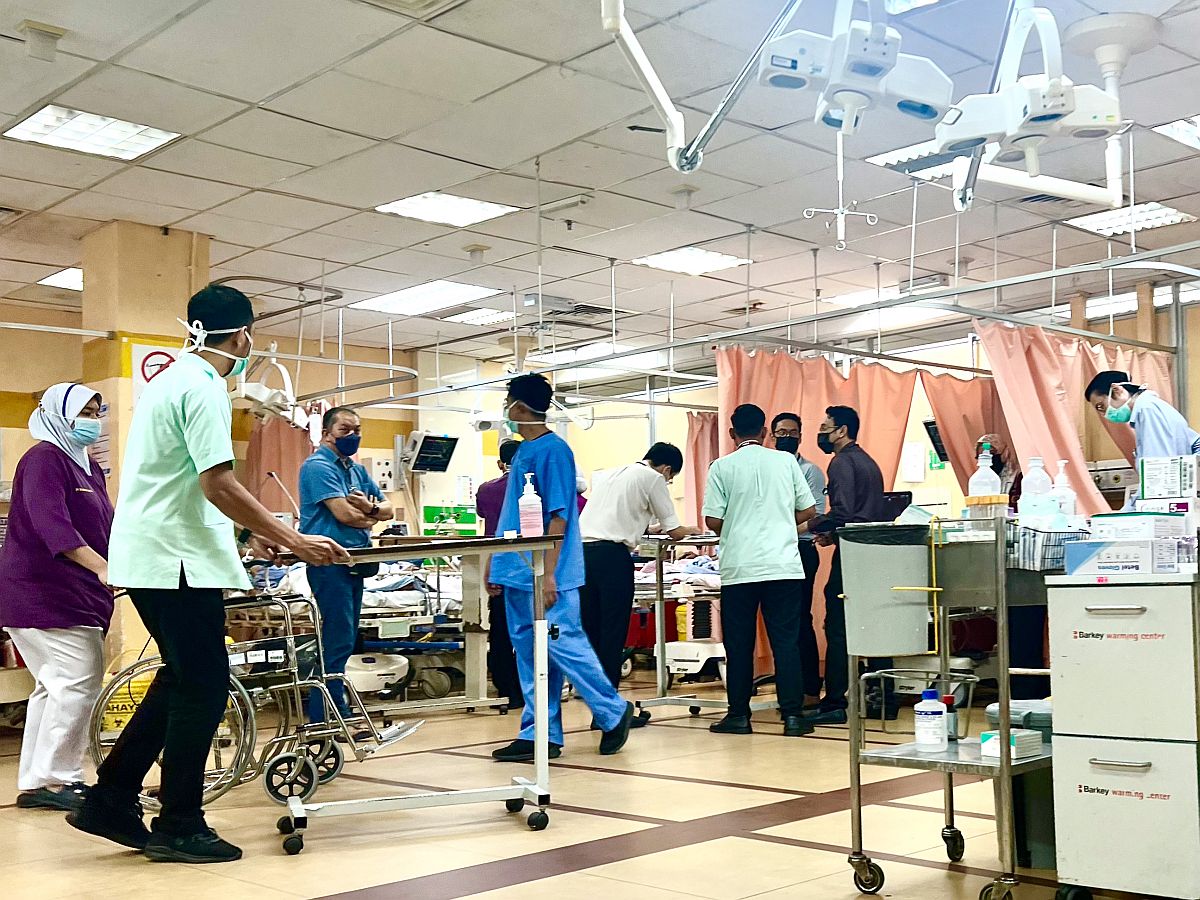As you know, public servants are bound by a gag order that keeps us from speaking up about current events within our community.
Yet, when the people paying the price are innocent members of the public, we can no longer remain quiet. If these conditions continue, maintaining affordable health care for our elders and children will remain unfeasible.
I’m a medical officer currently affiliated with the Ministry of Health, and it gives me great sorrow to acknowledge that our health care system is on the verge of complete and utter collapse.
We’ve already known that our system has been overwhelmed since the pandemic, but the entire structure was actually on a precarious precipice even prior to that.
As much as our ministry touts that it has “excessive” manpower and is capable of standing on its own without requiring additional support, the honest truth is the health care system has been bleeding out manpower since the initiation of the contract system. We can’t do anything about it at the grassroots level.
In fact, the remaining administrators have been told to make do with what they have, even if it jeopardises the quality of health care that the public receives in the end.
This is already visible in the cases that we’ve heard about concerning the management at emergency departments for the past couple of months.
It is even more horrifying to note that senior administrators – some of whom don’t even possess the adequate qualifications to be within their posts – have been making decisions, which result in patients being cared for by medical officers that were trained in various other fields for many years prior to that.
I would liken it to having a gynaecologist reviewing a patient for a condition that requires an internal physician’s expert review.
And yet, despite direct casualties occurring as a result of said administrative decisions, they are still continuing to subject the public to diminished quality of care.
A clear example of this occurred in the biggest public hospital in Malaysia in the last couple of months, and it’s my fervent hope that the family of the patient will receive justice for their case. However, their case will just be one in a vast majority, attributed to a lack of health care logistics. In reality, we know that it is because of administrative negligence.
If you want further proof, I will ask you to review the conditions at most of our major tertiary centres in the Peninsular regions.
The conditions I speak of are regarding the shortage of staff at hospitals, requiring the reshuffling of different tiers of staff, despite their different backgrounds and training.
Many people will be able to attest to the transfers that have been ongoing, be it among medical officers or staff nurses.
The latest in the list of mobilisations makes it seem like we are utilising the manpower we have, and yet, no one will talk about how some of the staff being mobilised have been trained in specific sub-specialisations for years prior to their transfers, and how their mobilisation does not take into account how many years it will take to train their replacements.
Some of these staff, quite frankly, have spent years, not to mention their own money, to go for specific training and Master’s programmes related to their own units – programmes that are yet to be recognised by the ministry, as these programmes are something new to Malaysia.
This is notwithstanding the fact that these programmes have been utilised in the modernisation of countries far advanced than ours.
This just shows how the ministry is willing to utilise a short-sighted route in the name of “temporary” fixes, instead of being willing to have a top-down discussion amongst the upper tiers and the working staff on the ground to come up with a long-term resolution to the problems we face.
This issue is made worse by the blatant cronyism that is obvious within the working tiers of many of our hospitals, as well as the need for existing staff to wait for the seniors to retire before any further changes can be requested or implemented.
This needs to change if we want our public health care system to advance.
Keep asking the administrators questions, because our health care system is one of the few in the world which provides for people who can’t provide for themselves, and there shouldn’t be a reduction in quality, merely for the sake of lack of quantity.
The author is a senior medical officer at a Ministry of Health hospital. CodeBlue is providing anonymity as civil servants are prohibited from writing to the press.
- This is the personal opinion of the writer or publication and does not necessarily represent the views of CodeBlue.







